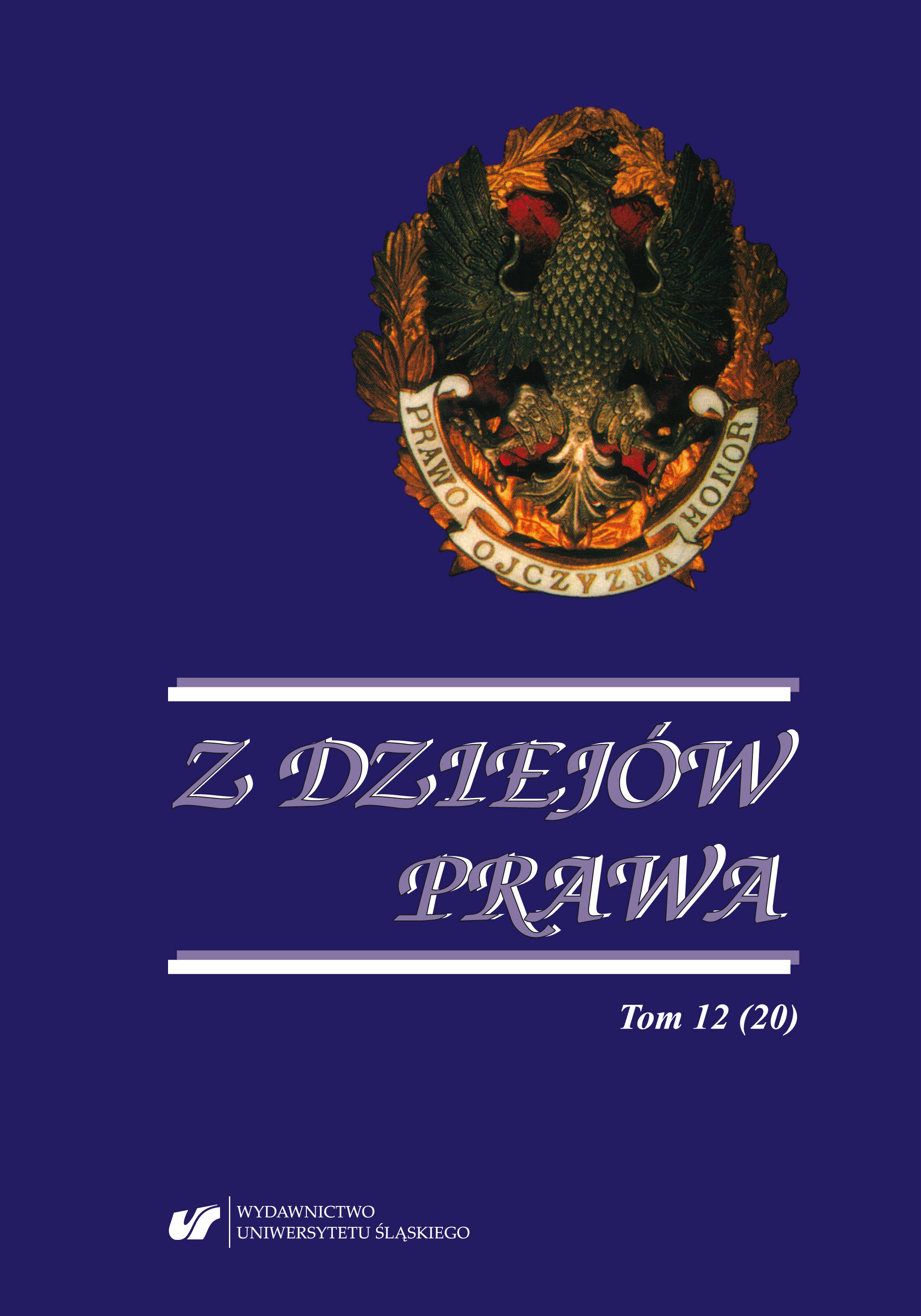Instytucja zwierzchnika sądowo-karnego jako dysponenta sądu polowego w Wojsku Polskim w latach wojen o granice Rzeczypospolitej 1918—1921
Institution of judicial and criminal superior as a field court administrator in the Polish Army during the years of wars over the borders of the Republic of Poland 1918—1921
Author(s): Leszek KaniaSubject(s): Law, Constitution, Jurisprudence
Published by: Wydawnictwo Uniwersytetu Śląskiego
Keywords: war courts; court and penal supervisor; military discipline; court verdict
Summary/Abstract: The institution of judicial and penal superior, which appeared in the political model of the field judiciary in the Polish Army in the years 1918—1921, was taken over from the auditoriats of the invading armies. Commanders of operational unions (army or fronts) served as court and penal superiors for all courts located in the headquarters of large units or in their operational area, for the state of a personal operational union and for the civilian population in the operational area. The commander of an operational union, operational group or Stage District, could require a legal clerk or commander of a large unit reporting to him, as his or her judicial and criminal superior, to implement a preliminary inquiry or investigation into any case. He also had the right to approve or refuse to approve the judgments of field courts, and at a critical time of the war in 1920, also the right to shape the judicial penalties for officers and soldiers of the Polish Army. Judicial and penal superiors replaced courts of second instance in the process of controlling court judgements, and the equipping of military commanders with these powers was dictated by the need to enforce obedience to orders and the need to shape military discipline. The practice of field courts indicates that judicial and penal superiors of the operational level exercised their judicial powers through court judges’ chambers, and the opinions of military lawyers submitted to them were honoured and respected. The task of legal experts was functioning as a transmission belt between the Headquarters of the Field Judiciary of the Polish Army and commanders of operational unions and field courts, as well as providing legal services to army commanders and troops. This judicial system “in the field”, despite periodic difficulties, proved its worth in the years of wars over the borders of the reborn Republic of Poland.
Journal: Z Dziejów Prawa
- Issue Year: 20/2019
- Issue No: 12
- Page Range: 435-458
- Page Count: 24
- Language: Polish

